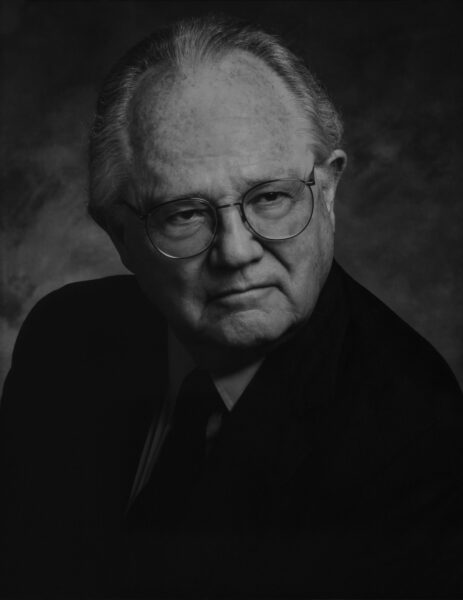Donald G. Mathews, professor emeritus at the University of North Carolina at Chapel Hill (UNC), died on April 30, 2024.

Donald G. Mathews. Photo courtesy University of North Carolina at Chapel Hill
Mathews was born in Caldwell, Idaho, to a family of teachers. Drawn to the Methodist ministry and history while studying at the College of Idaho, he pursued the first at Yale Divinity School followed by Methodist ordination, and the second at Duke University with a doctorate in history. Stints at Duke and Princeton University led him to the University of North Carolina at Chapel Hill, where he spent the rest of his career.
A stalwart of UNC’s history department, Mathews was a leading scholar of religion in the American South. He was a treasured mentor who taught students to listen closely to all voices from the past. A careful and compassionate student of Southern evangelicalism, Mathews showed how this faith of the 18th-century disinherited continued to comfort and inspire an enduring congregation of Southerners, from common folk to slaveholding patriarchs. He then described how white Southern evangelicals embraced racism while Black ones resisted and survived it. Over time, both became part of the South’s cultural bedrock while fostering such diverse descendants as the Civil Rights Movement and Christian nationalism.
Mathews pursued these themes in a series of profound books. He began with Slavery and Methodism: A Chapter in American Morality, 1780–1845 (Princeton Univ. Press, 1965), which traced the Methodist struggle over slavery from the circuit riders’ earliest criticisms to the birth of the proslavery Methodist Episcopal Church, South. Building on this work, Mathews devoted his second and best-known book, Religion in the Old South (Univ. of Chicago Press, 1977), to an ambitious interpretation of evangelicalism, the Old South’s dominant religious idiom. He argued that evangelicals first promised spiritual—not temporal—liberty to the outcasts of Southern society and grew by expanding that promise to ever-higher social ranks. When success confronted evangelicals with the evils of slavery, they shrank from a frontal attack. Instead, they befriended slaveholders to gain access to their captive Black audiences and to sanctify slavery by seeking their conversion. Ironically, these efforts led not to a purely submissive Black church but to a flexible, strategic movement that salved wounds when necessary and resisted oppression when possible. For Mathews, Southern white and Black churches were not opposites but co-heirs of a strained cultural complex that mingled white conservatism and Black radicalism.
Co-authored with his then-wife, Jane Sherron De Hart, Mathews’s next book probed the 20th century. The new interpretive framework of Sex, Gender, and the Politics of ERA (Oxford Univ. Press, 1990) used the example of North Carolina to show how religion, gender, and culture intersected to revolutionize American politics, transforming apolitical evangelicals into the New Right.
After editing a wide-ranging collection of essays and receiving an impressive Festschrift, which together demonstrated the breadth and maturity he brought to his field, Mathews closed his career with At the Altar of Lynching (Cambridge Univ. Press, 2017). Mathews’s darkest book grappled with a legacy of lynching in his own family to explore how the most passionate voices of Southern evangelicalism could belie their claims of spiritual liberation with blood sacrifice on the “altar of lynching.” In a work that pained him deeply, Mathews left us a striking testament to intellectual courage and physical determination.
Mathews was married twice. De Hart made her distinguished career on the faculties of the University of North Carolina at Greensboro and the University of California, Santa Barbara. Elizabeth F. (Betsy) Buford was a dedicated public historian who served as director of the North Carolina Museum of History and director of the Division of State History Museums. Sadly, she and Mathews’s beloved sister, Alice, both predeceased him. He is survived by numerous nieces and nephews.
Directing 24 completed dissertations, Donald G. Mathews left his greatest mark on students and readers. The editors of his Festschrift, Regina D. Sullivan and Monte Harrell Hampton, may have spoken for all of them when they honored Mathews’s “compelling but rare combination of sensitivity and skepticism” and his “refusal to dismiss those dimensions of the past that do not yield readily to the expectations and moral framework of present academic discourse.” May all of us follow that good example.
Harry Watson
University of North Carolina at Chapel Hill (emeritus)
This work is licensed under a Creative Commons Attribution-NonCommercial-NoDerivatives 4.0 International License. Attribution must provide author name, article title, Perspectives on History, date of publication, and a link to this page. This license applies only to the article, not to text or images used here by permission.